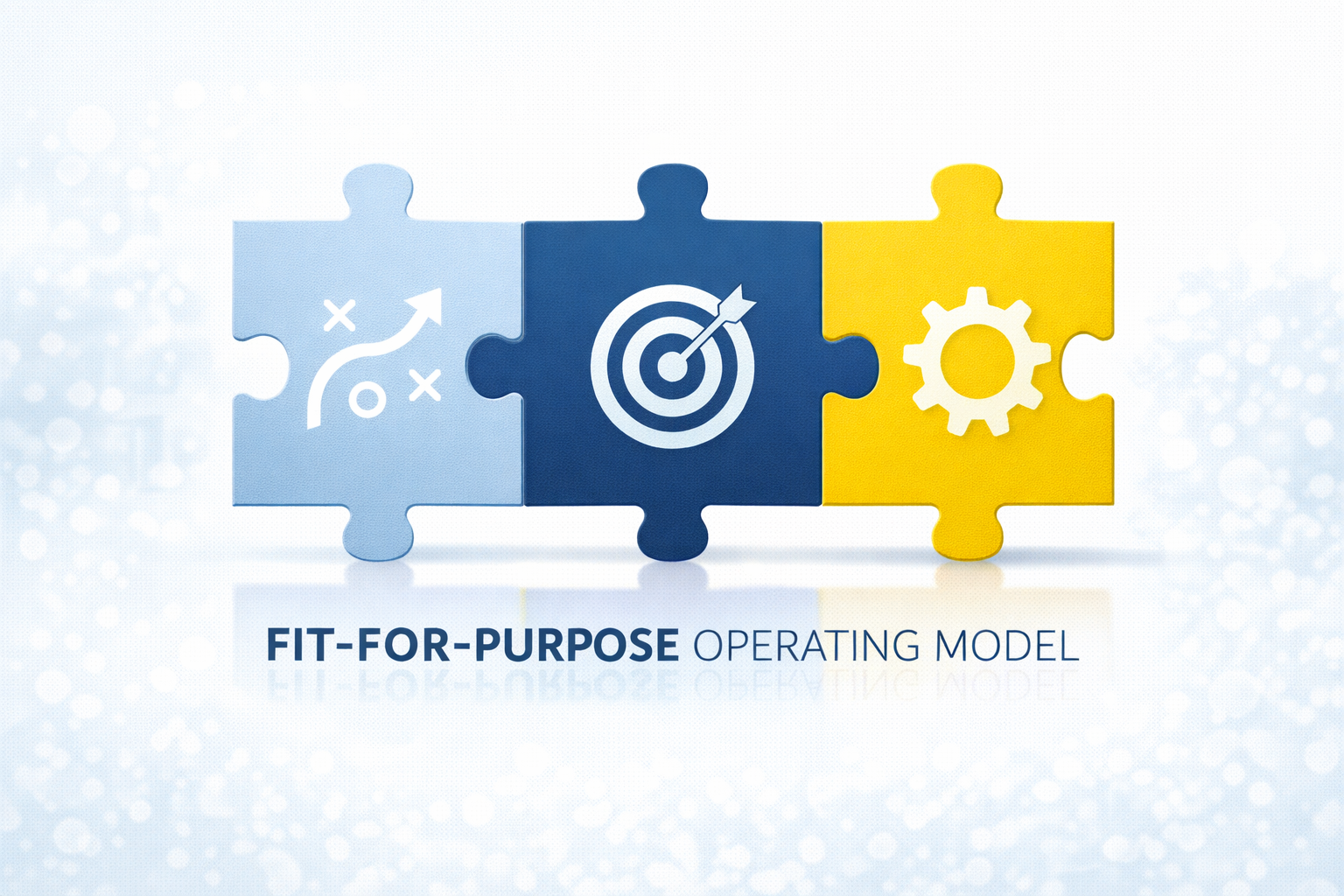
Unpacking the root causes behind underperformance and how to resolve them
It’s a familiar scene: Over dinner, a client lamenting inconsistent results across their portfolio of businesses. The conversation invariably turns to the most pressing question troubling every investor: why do deals that appear so promising on paper, ultimately fall short in reality?
The usual suspects – poor due diligence, weak management, and unforeseen market shifts – come-up often. While these classic explanations have some merit, they only scratch the surface. The true underlying causes are often less obvious, rooted not in financial models, deal structuring, but in the way businesses are led and organised, and in the behaviours of people who should work collaboratively to deliver the value creation plan.
Drawing on Humatica’s 20+ years of experience across hundreds of PE-backed investments, we have identified five key factors related to ineffective operating models and employee behaviours that round out the “Big 5” reasons for private equity investment failures – and, crucially, what should be done to avoid them.
1. Weak organisational Due Diligence
Even the most sophisticated investors can miss the mark with due diligence. Commercial and Financial due diligence typically examine the numbers in detail – market sizing, competitive dynamics, customer behaviour, revenues, costs, assets and profit. Yet, these assume the future will mirror the past, relying on optimistic growth projections or anticipated synergies, while underestimating competitive threats, technological disruption, and pricing pressures.
Most critically, organisational due diligence is almost universally overlooked. Deal teams don’t probe into the N-1 & 2’s leadership capability, the maturity of management processes, decision-making behaviours and culture. The “how question” on execution is postponed until after the transaction has closed. Would you buy a car without lifting the bonnet? That is how most transactions are done, and it’s not a good starting point for a great deal.
2. Failure to adapt to market shifts
Even the most robust investment thesis can be derailed by unexpected market shifts – consider the effects of COVID-19, tariffs or rapid advances in AI. Unexpected changes such as rising interest rates, inflationary pressures, regulatory moves, or new competitors can quickly render previous business case assumptions obsolete.
However, failure often stems not from the market turning, but from a company’s inability to adapt. Rigid structures, a legacy culture, and labour market rigidity limit flexibility. The difference between survival and failure isn’t foresight, but agility. The most resilient businesses invest in capabilities that enable rapid re-prioritisation – data-driven decision-making, empowered local leadership, and a culture with behaviours supporting adaptability. Market disruptions provide opportunities for these firms to surpass competitors – if they can adapt and respond swiftly.
3. Weak or misaligned management
No investment thesis can compensate for inadequate or misaligned leadership. Deal completion fundamentally changes management governance: expectations rise, scrutiny intensifies, and the pace accelerates, often amidst greater uncertainty. Executives who excelled in a stable environment struggle when transformation is needed.
This isn’t always a question of competence, but rather suitability for the journey ahead. Leading a business through transformation demands different skills – challenging assumptions, empowering teams, and sustaining a high tempo under pressure. Too often, investors wait for clear signs of financial underperformance before addressing leadership issues, losing valuable time. The most astute investors assess leadership competence at all levels on an on-going basis, and intervene quickly when capability and expectations diverge.
4. Ineffective Operating Model
At the outset, value-creation plans look very compelling. Yet, reality quickly sets-in. Initiatives proliferate, priorities clash, and the intended operating rhythm falters. Execution doesn’t fail for lack of ambition, but because of weak governance, convoluted decision-making processes and capacity constraints. The firm’s operating model needs transformation to match the new ambitions.
Experienced PE sponsors recognise that an ambitious thesis needs an robust operating model with entrepreneurial governance, clear structures, roles and accountabilities, and the right people in the right places. Without this, even the best-designed 100-day plan risks remaining just a plan. Transformation should be completed as quickly as possible to give the business the longest runway for success. However, mastering operating model implementation requires time and resources to work out the critical details to deliver the anticipated benefits.
5. Lack of organisational resilience
Perhaps the most overlooked, yet decisive, cause of failure is a lack of organisational resilience. Portfolio companies are optimised for efficiency and lack the resources for absorbing shocks. Leadership depth is often thin, decision-making located in the wrong places, and cross-functional collaboration can depend on just a few individuals.
While bloated organisations are inefficient, those that are too lean become brittle and are vulnerable to critical bottlenecks that slow the entire business.
Our client work indicates that when volatility strikes – be it supply chain issues, unexpected leadership departures, or sudden changes in demand, fragile structures fail. By contrast, resilient organisations adapt and endure because they have embedded behaviours that allow them to change: identifying opportunities for improvement, optimising decision making, and ruthless delivery. Building resilience isn’t about playing it safe; it’s about appropriately empowering people and ensuring consistent performance despite uncertainty. It is not a “soft” factor, but a fundamental driver of enterprise value.
The takeaways
Private equity has long excelled at financial discipline. However, in a world of rapid market changes and shorter leadership tenures, agile organisations are more resilient and will lead the pack.
The next frontier is operating discipline. The best-performing deals won’t be those with the cleverest financial models, but those powered by businesses able to learn, adapt, execute and re-invent themselves time and again.
These capabilities are underpinned by clear structures, great management processes, and entrepreneurial governance. In this context behaviour and culture are the new alpha in private equity which avoids the Big 5 risks.

Private equity investors and executive teams rightly focus on operating model design as a core lever for value creation. The right structure can accelerate growth,…
Read more
In many organizations, strategy promises growth, efficiency, and innovation—but day-to-day execution tells a different story. Decisions drag. Silos persist. Accountability blurs. Leaders work harder without…
Read more
In today’s private equity landscape, the classic levers of value creation are no longer enough. As markets evolve and competition intensifies, governance is emerging…
Read moreReceive our news and valuable perspectives on organizational effectiveness each month.